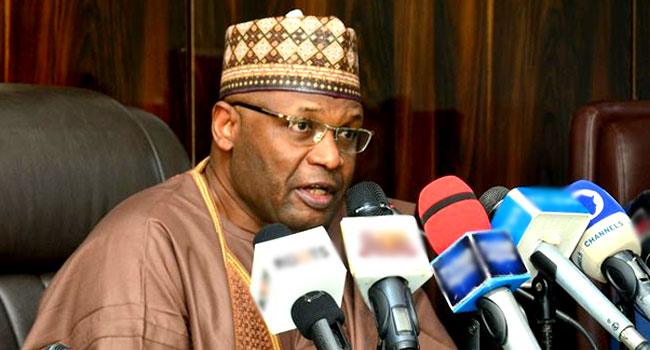Scrambling a response to the damning position of the European Union Election Observation Mission (EU EOM) on the 2023 national and state elections, the Independent National Electoral Commission (INEC) has described as “unfair” the observers’ final report on its overall performance.
But The Youth Initiative for Advocacy, Growth, and Advancement (YIAGA) Africa, applauded the final report, noting it is a needed and welcome development.
The Executive Director of YIAGA Africa, Mr. Samson Itodo, also featuring on Channels Television programme, ‘Politics Today’ on Tuesday, June 27, 2023, as INEC spokesman, said; “I don’t think the intent of the EU’s report is to assess and make a judgment as to the credibility of the elections process”.
He added: “There is nothing wrong with the timing of the European Union’s post mortem report on Nigeria’s 2023 elections. I don’t think that the intention is to influence the current cases being handled by the court. It is not in any way an attempt to interfere with that process. It is just part of the practice in the election observation ecosystem
“The EU has a comprehensive framework for measuring and assessing elections based on certain values and principles of the country in our electoral law and constitution.”
Significantly, and tallying with popular opinion, the EU observers urged INEC to improve on its inability to upload results.
But INEC’s National Commissioner and Chairman of Information and Voter Education Committee, Festus Okoye, said: “It is not fair to judge the entire performance of the commission on the basis of a glitch in the result upload for the presidential election.”
Okoye disagreed with the report that suggested that the glitch in downloading the presidential election result was a fundamental downside.
Though the result that produced Senator Bola Tinubu as President has been widely questioned and is a subject of litigation, partly on account of the INEC’s inability to download the results of the presidential election on its IRev portal, Okoye insisted it was not a strong enough point to rate INEC’s performance.
On Channels Television, he justified his position: “Almost all the political parties nominated and got accredited at least over 170,000 polling agents. What that means is that they had primary evidence of the results from the polling units.”
While admitting some lapses, the electoral body’s spokesman added, “It is those results from the polling units, together with the BVAS as a machine itself, that goes to the collation centre.
“So, it is not true for a political party to rely only on results uploaded in order to get the evidence with which it wants to prosecute its case in court.”
He said the commission is going to harmonise all the reports by international bodies that have been presented and is going to look at the reports holistically.
“From the report presented, the EU made mention of the fact that there have been significant improvements in our electoral process and there have been so many positives to this particular election.
“One of the positives is that we registered over 93 million Nigerians during this election. Not only that. If you look at the reports submitted by international observers, in terms of voter accreditation, the BVAS performed optimally,” he boasted.
Some of the challenges of the elections, according to him were insecurity and violence. His words: “Insecurity was in some parts of the country, which we cannot dispute. Secondly, violence was targeted towards our staff members and some other Nigerians. Fuel scarcity and naira re-design also were challenges.
“Recommendations have been made on administrative and legal issues and we are going to harvest them and implement them.”
The European Union Election Observation Mission presented its final report on Nigeria’s general elections with the Chief Observer, Barry Andrews, telling a press conference in Abuja that his team of 110 that in the lead up to the 2023 general elections, Nigerians showed a clear commitment to the democratic process, noting however that “the election exposed enduring systemic weaknesses and therefore signal a need for further legal and operational reforms to enhance transparency, inclusiveness, and accountability.”
The mission observed shortcomings in law and electoral administration that hindered the conduct of well-run and inclusive elections and damaged trust in INEC.
The EOM listed six areas it identified as priority recommendations, adding that if implemented could contribute to improvements for the conduct of elections.
The six priority recommendations are to remove ambiguities in the law; establish a publicly accountable selection process for INEC members; ensure real-time publication of and access to election results; provide greater protection for media practitioners; address discrimination against women in political life, and; impunity regarding electoral offenses.
He adds, “Importantly, there is a need for political will to achieve improved democratic practices in Nigeria.”
He noted that the European Union stands ready to support Nigerian stakeholders in the implementation of these recommendations.


